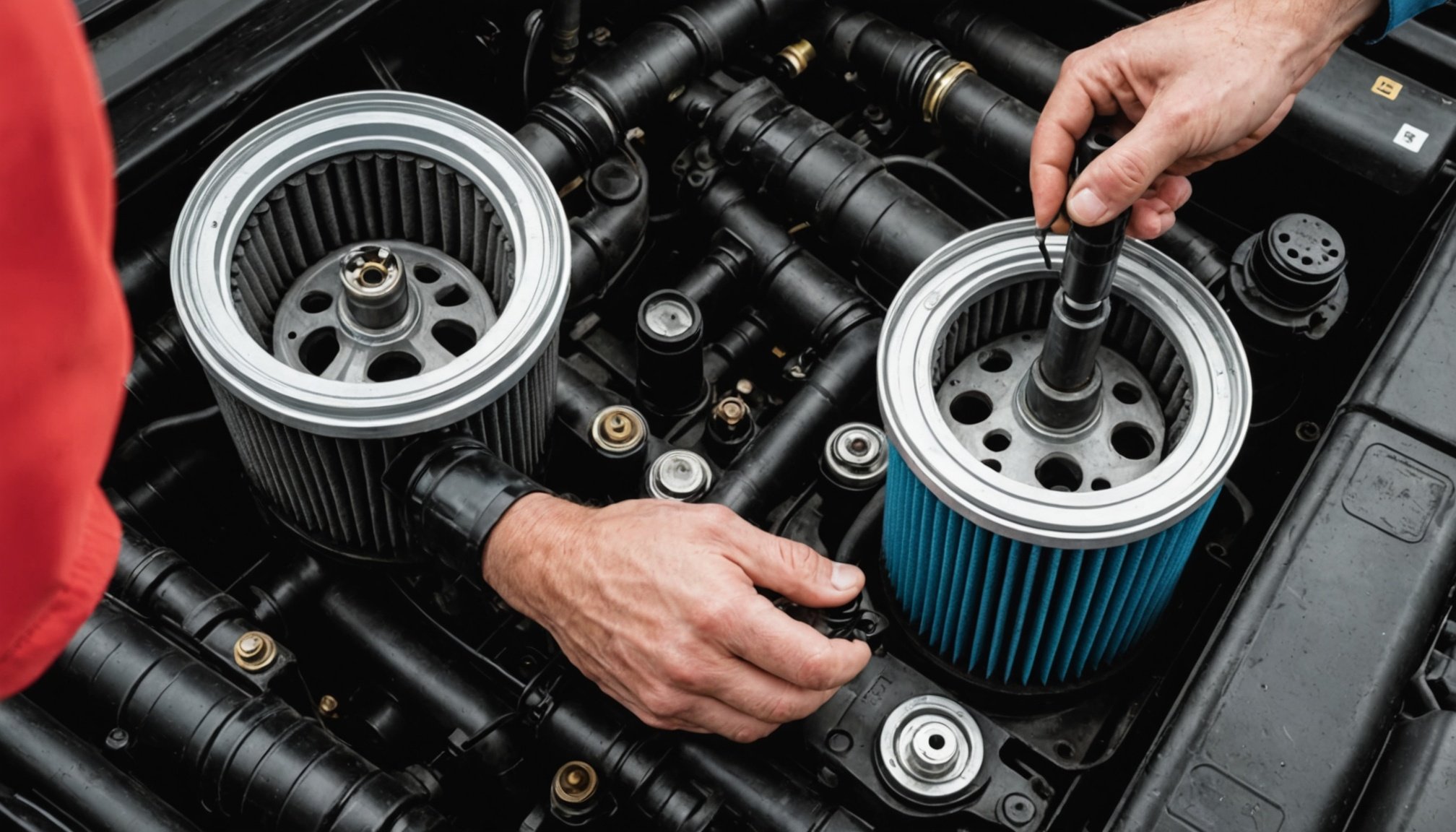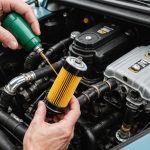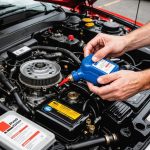Importance of Fuel Filter Replacement
Fuel filter maintenance is crucial for any diesel truck care routine, ensuring the vehicle operates efficiently and has a long lifespan. The fuel filter plays a vital role in keeping the fuel system free from contaminants. By filtering out dirt, rust, and other impurities, it prevents these elements from reaching the engine, which could otherwise lead to severe damage.
Neglecting regular fuel filter maintenance could result in several negative consequences. Clogged filters can restrict fuel flow, causing the engine to work harder, which diminishes performance and could lead to overheating. This not only impacts fuel efficiency but can also lead to more severe mechanical issues, necessitating costly repairs.
Also to see : Essential tips for keeping your classic british convertible cool: effective methods to avoid overheating
Diesel truck care greatly benefits from a clean fuel system, enhancing both performance and longevity. Regular replacement of the fuel filter ensures consistent engine power and optimal fuel combustion. This maintenance step is critical not only for preserving vehicle health but also for maintaining safety standards on the road.
In essence, understanding the importance of clean fuel systems and adhering to a diligent maintenance schedule can prevent many potential problems and keep diesel trucks running smoothly. Regular fuel filter maintenance is an investment in vehicle durability and reliability.
Also read : Expert tips for effortlessly installing a panoramic camera system in your luxury british car
Tools and Materials Needed for Replacement
Embarking on a fuel filter replacement requires certain tools and materials to ensure a smooth and effective process. Essential tools include a wrench set, pliers, and a screwdriver set. These basic tools are necessary for detaching and securing the filter components. Additionally, having a drain pan handy is crucial for collecting any residual fuel, minimizing spills during replacement.
When it comes to recommended fuel filter brands for British diesel trucks, brands like Bosch and Mann-Filter are highly regarded. These brands offer filters that meet specific performance standards and are compatible with various diesel engines, ensuring optimal filtration and efficiency.
Safety gear, including the use of gloves and goggles, is vital to protect against fuel exposure. Fuel can be hazardous, and using appropriate personal protective equipment (PPE) is non-negotiable. Alongside safety gear, having materials such as rags or absorbent pads is useful for cleaning up any accidental spills, ensuring both your safety and that of your environment.
By preparing with the right tools and materials, you’ll not only facilitate an efficient diesel truck maintenance routine but also ensure safe and effective replacement of the fuel filter.
Step-by-Step Guide to Replacing the Fuel Filter
Replacing a fuel filter is a crucial part of diesel truck repair. Following a structured fuel filter replacement process ensures the engine operates smoothly.
Preparation Before Replacement
Before diving into the work, prioritize safety. It’s vital to use personal protective equipment (PPE) like gloves and goggles and perform the replacement in a well-ventilated area. Begin by checking the fuel system for any leaks and identifying the existing filter’s position within the engine. Gather all necessary tools and materials, such as wrenches and rags, to facilitate an efficient replacement process.
Removing the Old Fuel Filter
Disconnecting the old filter requires care to avoid fuel spillage. Utilize tools such as pliers to gently release the filter’s clamps or fittings. Despite the model differences in British diesel trucks, generally, it’s advisable to have a drain pan ready to catch excess fuel. These precautions can prevent damage and ensure cleanliness throughout the process.
Installing the New Fuel Filter
Install the new filter by aligning it properly with the fuel lines. Securely connect the filter, ensuring there are no loose fittings. After installation, double-check connections to avoid leaks, which can lead to engine performance issues. Proceed with a final inspection before starting the engine to confirm everything is in place.
Safety Precautions During Replacement
Ensuring safety during the fuel filter replacement is imperative for both the individual and the environment. One of the primary precautions involves working in a well-ventilated area. This reduces the risk of inhaling harmful vapours that can be emitted during the replacement process. Poor ventilation can lead to health risks such as dizziness or respiratory issues.
Utilising personal protective equipment (PPE), including gloves and goggles, is essential. Gloves protect your skin from irritants and prevent direct contact with fuel, while goggles shield your eyes from splashes. These precautionary tools are fundamental for conducting diesel truck maintenance safely.
In addition, being mindful of fire hazards is crucial. Keep open flames or sparks at a distance, as fuel vapours are highly flammable. Equip your workspace with a multipurpose fire extinguisher, understanding its operation beforehand.
To prevent fuel spills, have absorbent materials such as rags or spill pads on standby. In case of a spill, these items will help control the spread promptly. Knowing the protocol to manage such incidents further solidifies the safety of your vehicle repairs. By adhering to these guidelines, replacements can proceed smoothly and securely.
Troubleshooting Common Issues After Replacement
When dealing with fuel filter troubleshooting, identify issues that may arise post-replacement to ensure optimal diesel truck operation. If the engine performance decreases or odd noises occur, improper installation might be the culprit. Check if the connections are secure and not leaking to maintain fuel system integrity.
Common diesel truck issues post-replacement include inconsistent engine performance and difficulty starting the vehicle. These symptoms can indicate air trapped within the fuel lines or issues with fuel pressure. Bleeding the system to remove air bubbles can often resolve these challenges, restoring proper function to the diesel truck.
Sometimes, you may face persistent fuel system problems despite attempts to resolve them. In such scenarios, professional assistance is advisable, especially if there’s a continuous drop in engine efficiency or fuel delivery remains unstable. Professionals can diagnose deeper issues possibly related to other components, like injectors or pumps.
Additionally, ensure the replacement filter is compatible with your truck model and that quality brands are used. This practice helps prevent frequent replacements and ensures robust performance. If uncertainty persists, always refer to the vehicle’s manual or consult a specialist for tailored advice.
Frequently Asked Questions about Fuel Filter Replacement
When addressing fuel filter replacement FAQs, understanding the nuances of diesel truck maintenance is beneficial. A common query is, “How often should fuel filters be replaced?” Generally, replacement every 20,000 to 30,000 miles is advised, but this can vary depending on usage and specific truck models. Always refer to the vehicle’s manual for precise guidance.
Another frequent question involves fuel filter performance: “What signs indicate a failing fuel filter?” Symptoms like decreased engine power, misfiring, or trouble starting are strong indicators. Addressing these promptly can prevent further diesel truck issues.
Regarding maintenance schedules, owners often wonder, “Is it necessary to replace the fuel filter so frequently?” While regular replacement may seem tedious, it is critical to maintaining an efficient, clean fuel system. Consistent filter checks and replacements mitigate the risk of costly repairs.
For those considering DIY replacement, a frequent inquiry is, “Should homeowners undertake this, or is professional assistance necessary?” With the right tools and instructions, homeowners can manage this task. However, seeking professional help ensures thorough replacement and access to advanced diagnostics if fuel system problems persist.











